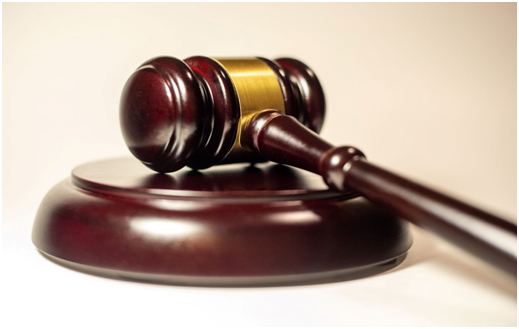
The US Supreme Court Considers the Scope of Attorney-Client Privilege in Dual-Purpose Communications
On January 9, 2023, the US Supreme Court discussed in oral arguments how federal courts should decide if the attorney-client privilege applies to communications with dual purposes. The main issue being considered is whether or not communications with dual purposes are covered by the attorney-client privilege. The Court's decision could affect the way attorneys give advice to clients in regard to their legal, business, and other related matters.
Background of the Case and Three Approaches to Determining Privilege in Dual-Purpose Communications
CASE BACKGROUND
The attorney-client privilege is a legal protection that keeps private any communications between lawyers and their clients that were made for the purpose of giving legal advice. In the case of In re Grand Jury, a grand jury issued a subpoena for an unnamed company and law firm to hand over communications related to a criminal investigation. The company and law firm refused to provide some of the requested documents, arguing that they were protected by the attorney-client privilege because the communications dealt with both the law firm's preparation of the company's tax returns and its legal advice to the company.
A federal district court decided that the withheld documents either were not protected by any privilege or were subject to the crime-fraud exception to privilege rules, and therefore, could be compelled. On appeal, the US Court of Appeals for the Ninth Circuit supported the district court's decision, stating that the proper measure for privilege in dual-purpose communications is the single primary purpose of the communication.
Normally, the privilege does not extend to nonlegal communications, including certain communications regarding an attorney's preparation of tax returns. Determining if the attorney-client privilege applies to dual-purpose communications can be challenging. This is particularly true in the case before the Court, where an attorney advises a client on both general tax preparation and what the client should claim on his tax return. As several amici groups, the parties, and the Court have noted, and as described below, the impact of the Court's ruling could extend well beyond tax advice.
THREE APPROACHES
The primary purpose test is the most restrictive, as it requires a single primary purpose of seeking or providing legal advice. The significant purpose test takes into account both the intention of the sender and the context of the communication in determining if the privilege applies. The Seventh Circuit's rule is more expansive, as it focuses on whether legal advice was sought or provided in the communication, regardless of whether it was the primary or secondary purpose.
Each of these tests has its own strengths and weaknesses in terms of how they apply to dual-purpose communications. The primary purpose test is more restrictive in that it requires a single primary purpose, while the significant purpose test takes into account both the intention of the sender and the context of the communication. The Seventh Circuit's rule is more expansive in that it focuses on whether legal advice was sought or provided regardless of its primary or secondary purpose. Ultimately, it will be up to the courts to decide which test they prefer and apply it accordingly.
In addition, there are various ways that parties can attempt to protect confidential communications from being discovered. Parties can use encryption technologies and take other measures to keep their communications private, but even these measures may not be sufficient to prevent discovery in some cases. Additionally, courts have developed procedures for handling privileged information to ensure that it is not improperly used or disclosed.
No matter which approach a court uses when dealing with dual-purpose communications, it is important to remember that the attorney-client privilege is a fundamental component of our legal system and must be respected. Courts must ensure that all parties involved are aware of their rights when it comes to a confidential communication, and take appropriate steps to protect privileged information. By doing so, they can help ensure that the attorney-client privilege is respected and that clients can feel secure in knowing that their confidential communications are safe from disclosure.
ISSUES RAISED AT ORAL ARGUMENT
During oral arguments, the justices focused on several key issues, including how to determine the primary purpose of a document when legal and nonlegal purposes are of equal importance, how to determine if an underlying purpose is significant, the potential impact on state courts, and the potential implications of the decision beyond tax preparation and advice. The government argued that in cases where legal and nonlegal purposes are closely balanced, courts should err on the side of upholding the attorney-client privilege, while multiple justices questioned how a court should determine the significance of a given purpose and whether the privilege could be abused. Additionally, the justices highlighted concerns about potential inconsistencies between state and federal courts if the "significant purpose" test were adopted, and Justice Kavanaugh questioned whether the holding could impact other types of communications, such as those related to internal investigations. Both parties appeared to agree that the attorney-client privilege should generally protect internal investigations.
IMPLICATIONS FOR ATTORNEYS AND THEIR CLIENTS
Depending on how the Court rules, this case could greatly influence how comfortable clients feel in disclosing important business information to their attorneys. The Ninth Circuit's application of the “primary purpose” test to communication concerning internal investigations and public relations matters may be affected by the verdict. Furthermore, due to the tendency of state courts to follow up on federal precedent in similar cases, there is a likelihood that the ruling will affect related court decisions across the country.
Amicus organizations representing businesses and employers, such as the US Chamber of Commerce, have urged the Supreme Court to adopt the DC Circuit's "significant purpose" test. These groups argue that the "significant purpose" approach is better suited for businesses because attorneys need to take into account both legal and business elements in order to provide effective advice. If the Ninth Circuit's approach was adopted, it would likely lead to unexpected outcomes for clients.
NEXT STEPS
The Supreme Court could render a decision on this matter sometime between March and July 2023.
The consequences of the case are largely based on the emphasis that the justices place on their written opinion, as notable distinctions have already been drawn from both parties’ oral arguments and submitted briefs.
REFERENCE:
US Supreme Court to Consider Scope of Attorney-Client Privilege in Dual-Purpose Communications
https://www.jdsupra.com/legalnews/us-supreme-court-to-consider-scope-of-3572303/


